It’s been almost six months since the last time I saw my father. In November 2022, he left behind Los Angeles and returned to his home in Queretaro, Mexico. After 17 years of being in the United States without papers, my dad decided it was time to go back to Mexico and reunite with his family.
“I now board a plane like the one I took 17 years ago. A new flight started, I don’t know what fate has in store for me,” my father wrote in a Facebook post, written as he was waiting for his flight to take off. “I only know that whatever comes, I receive with open arms.”

mexican dad
American Dream
As an undocumented child of undocumented parents, I know that my father’s decision to leave the country did not only mean he was saying goodbye to the “American Dream,” but he was ultimately saying goodbye to everything he knew for almost two decades, and most importantly, goodbye to me, his only child, for an indefinite amount of time.
Year after year, my dad would tell me how much he missed everything about his hometown. “I think next year will be the year, mija, that year I will finally return,” he would tell me. But then the following year would pass, and my dad would find a reason to stay. The biggest one of those reasons being me.
His biggest wish was to see me receive my bachelor’s degree and walk the stage – and I’m so grateful that he made that happen. Six months after I graduated from California State University, Dominguez Hills, with a degree in journalism, my dad boarded a plane that would take him to Queretaro, approximately 1,700 miles away from me.
On that plane, my dad boarded with his luggage and inside he made sure to pack a copy of all the newspaper issues of my former college newspaper, The Bulletin.
Undocumented and insured
Besides the newspaper articles and his clothes, my father also took one other thing: his diabetes. My father has always been hesitant to attend doctor appointments. He wouldn’t even go for regular checkups. Who does that, you ask? A lot of undocumented people are afraid because they are afraid of what that might mean for their immigration status. In 2021, the California Health Care Foundation estimated that approximately 3.2 million Californians would remain uninsured in 2022, or about 9.5% of the population aged 0 to 64. My dad was one of them. He had no insurance and would avoid seeking medical assistance because he would not want to miss work or because of the language barrier. He did not speak English and was afraid that his experience would be anything but pleasant.
But this all changed in August 2021, after my father landed in a hospital emergency room due to complications brought out by his untreated diabetes. He had developed an ulcer (open sore) on his left leg and with time, the infection grew. By the time he arrived at the ER, he needed to forego an amputation in order for the infection to not spread to other extremities of his upper leg.
Recovery took 8 months. For the first six of those months, he was glued to his bed, receiving at-home care. I learned how to inject insulin into his body, check his blood pressure and clean his wound, something that I had to do daily, all while getting through my senior year of school. Although it was a difficult time for both of us, it also brought us closer than ever and I would do it all over again if it meant seeing my dad healthy.
Life in Mexico
Today, he sleeps and wakes up in his hometown. He can eat his meals with his siblings and his parents, but there are some things that have not changed. Because of his diabetes, he still needs to inject insulin into his body every night to regulate his sugar levels, something that at first was hard as he used to have a severe phobia of needles. He must also continue to watch his diet and food intake.
This week, my dad will have a third and hopefully final eye surgery. He currently has cataracts, which are cloudy areas in the lens of the eye. These are growing in both of his eyes, a common condition in diabetics. We hope that with this final surgery, he will be able to see clearly and without any problems. This has caused great insecurity for him and prevented him from doing daily tasks like driving and working.
When he first arrived in his hometown in Mexico, people who recognized him or who had found out he was back from the U.S. would stop by to greet him. My father is known for being equally talkative and friendly, but many of these times he was unable to make out the person who was saying “hi” to him from across the street. “I’m not sure who they are because I can’t see their faces clearly,” he would tell me in our phone calls. “The only thing I can do is wave and hope they do not think I am being rude.”
My father’s health is always in the back of my mind, and knowing he is struggling causes a raging emotional fire within me that I do not know how to extinguish.
It hasn’t been easy for me. In the last few weeks, there have been days I wake up in the middle of the night, feeling anxious, wondering if I will ever get to see and hold him again.
My favorite dreams are the ones he appears in. They have helped me feel just a bit closer to him, although when I wake up, he’s no longer here.
Our birthdays
I turned 25 in March, and he turned 48 years old this month.
For many undocumented people, including myself, birthdays have always been bitter-sweet. As much as it is a celebration of life, it is also a reminder that the time is ticking and that another year away from your loved ones continues to pile up.
This year I had a birthday dinner in Silver Lake with all my friends and loved ones around me, and I had an amazing time. But as I blew out the candles on the small cake brought out by the waiters, I couldn’t help but think of my father. Of the many birthdays we would spend together, he’d play and sing Las Mañanitas for me every year.

When your father must move away, friends become even more important.
I made sure to call him last week on his birthday, and we talked on the phone for over an hour. He laughed a lot and sounded happy. He confessed he was nervous about his third and upcoming eye surgery, but also ecstatic to be able to see clearly again. Not only that, but he thanked me for having remembered his birthday and said he missed me. As soon as he said those words, I could feel a big knot build in the back of my throat. I miss him so much, every day, at every hour.
Back to reality
Our birthdays have now passed, but I hope the wish we each made — to be able to spend our birthdays together again — makes its way to reality.
For months after my dad left the U.S., I stopped attending family gatherings or parties. I would often tell myself I was too tired to attend, or too busy to commute to my family’s house. Today, I’m able to accept that those were only excuses. I realized that attending family parties was something I was avoiding because it reminded me too much of my dad or, to be exact, his absence.
He and I would always arrive and leave together. We would sit side by side, and I was so used to turning to my side and having a quick conversation with him or cracking a joke here and there throughout the night. He was also my dancing partner, and often we’d be the first ones on the dance floor, ready to dance to some cumbias. I realized I had never been to a family party without him.
I have a phone call with my father almost every day. Even when there are some days when his reception and cellphone connection are unstable, we try to communicate via WhatsApp or text. In addition, our family also created a WhatsApp group chat, which in many ways has alleviated some of my nerves when I can’t reach him. When I have not heard from him, I can send a quick message to the group chat and ask if anyone is with him or if they know he is OK. On one of those calls, my dad also revealed to me that he found a new best friend, a four-legged one named Luna.
Our support system
Some things make me feel like life has come full circle. This was one of them: before my mother, my father and I immigrated to the U.S., we had a dog. Kiwi was the first and only dog that I’ve had. When we left Mexico, I remember wanting to pack him in my backpack and crying when my mom told me I couldn’t. We had to leave it behind with my grandmother.
Years later, Kiwi had babies and my grandmother cared for them. From Kiwi’s babies, my grandmother kept one of them, Dora. After years Dora and Kiwi passed away, but before dying, Dora also had babies. Luna is one of those babies. My father said that the moment he walked into my grandmother’s house for the first time, Luna wagged her tail as if she had known him for a long time.
As for me, I have a four-legged best friend that has also helped me. My cat Ophelia has seen me cry after hanging up the phone with my dad, and she has seen me die of laughter on the phone with him. I also have an amazing and supportive group of friends who remind me that everything, including pain, passes. And an incredibly patient partner, who has held me in my most vulnerable times and showed me that both sadness and joy can coexist within me.
I miss my dad dearly every day, and I know he does miss me, too. And although we are thousands of miles apart, I know that our hearts remain close and that our love goes beyond any human-made border.
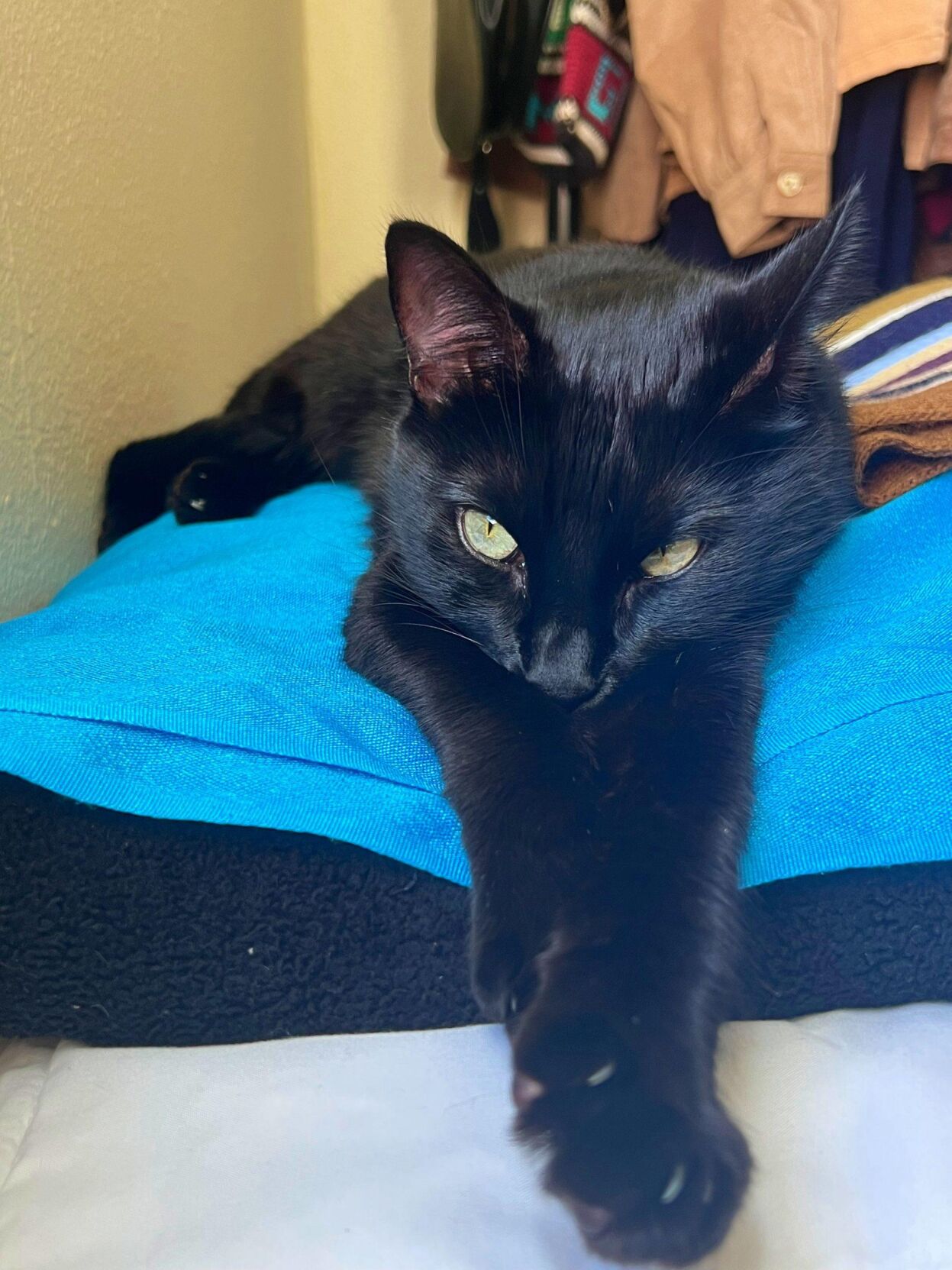
My cat is named Ophelia, and she has been my emotional support system throughout my current journey.
Read more stories about immigrants on our website

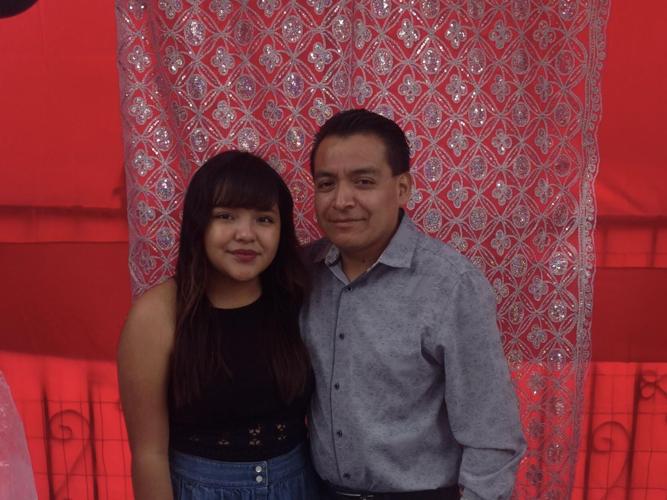
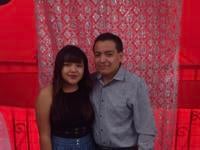



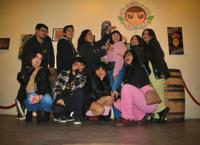
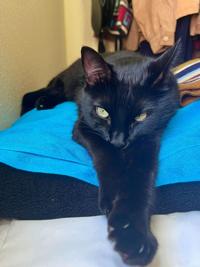
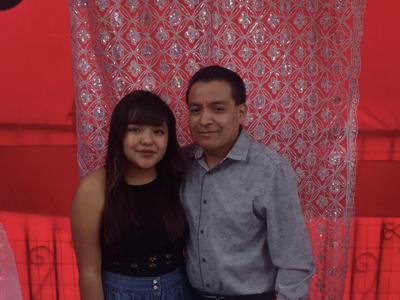

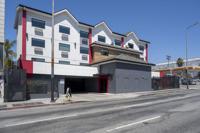

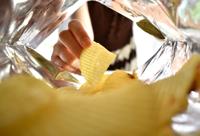

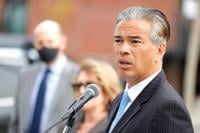

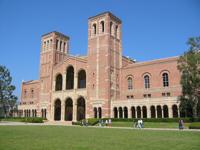
(0) comments
Welcome to the discussion.
Log In
Keep it Clean. Please avoid obscene, vulgar, lewd, racist or sexually-oriented language.
PLEASE TURN OFF YOUR CAPS LOCK.
Don't Threaten. Threats of harming another person will not be tolerated.
Be Truthful. Don't knowingly lie about anyone or anything.
Be Nice. No racism, sexism or any sort of -ism that is degrading to another person.
Be Proactive. Use the 'Report' link on each comment to let us know of abusive posts.
Share with Us. We'd love to hear eyewitness accounts, the history behind an article.